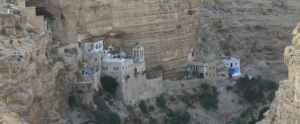Maranatha Global Bible Study
The Return of Jesus
Joel Richardson
YHVH Kills the Competition
The culmination of the confrontation is the parting of the Red Sea.
I. The Lord in a pillar of cloud (Exodus 13:21-22)
A. The Canaanites referred to their god Ba’al as “the cloud rider”, but the Lord himself appeared in the cloud and revealed Himself to be the cloud rider ( Exodus 14:19 )
II. The parting of the Red Sea (Exodus 14:13-31)
A. The Lord didn’t invite Israel to partner with Him in this instance, but rather to stand still and watch what He would do (Exodus 14:13-14)
B. As He had divided the waters in the beginning of creation, so the Lord divided the waters of the Red Sea in a mighty demonstration of power (Exodus 14:16)
C. The Lord put the terror of Himself in the heart of His enemies and the fear of Himself in the hearts of the Israelites through this event (Exodus 14:25, Exodus 14:31)
D. The word used in Hebrew is yam , meaning a sea or ocean, not a shallow marsh or little river.
III. The victory hymn of Moses ( Exodus 15:1-21 )
A. YHVH is a Warrior; YHVH is his name ( Exodus 15:3 )
-
-
- As at the beginning, even so at the end of the story, the divine Warrior will return
( Revelation 19:11 )
- As at the beginning, even so at the end of the story, the divine Warrior will return
-



